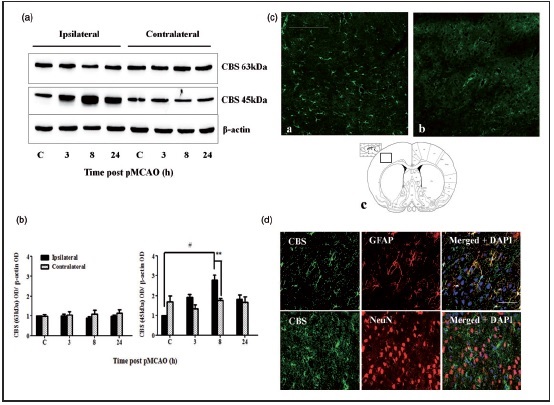Hot Off the Press: Cystathionine β-Synthase Inhibition Is a Potential Therapeutic Approach to Treatment of Ischemic Injury
Cystathionine β-synthase (CBS) is the central nervous system’s major producer of hydrogen sulfide (H2S), which has been reported to exacerbate stroke outcome in experimental models. This study led by Chan Su Jing and Peter Wong showed that when SH-SY5Y cells were transfected to overexpress CBS, the cells were able to synthesize H2S when exposed to high levels of enzyme substrates but not substrate concentrations that may reflect normal physiological conditions. At the same time, these cells demonstrated exacerbated cell death when subjected to oxygen and glucose deprivation (OGD) together with high substrate concentrations, indicating that H2S production has a detrimental effect on cell survival. This effect could be abolished by CBS inhibition. The same effect was observed with primary astrocytes exposed to OGD and high substrates or sodium hydrosulfide. In addition, CBS was upregulated and activated by truncation in primary astrocytes subjected to OGD. When rats were subjected to permanent middle cerebral artery occlusion, CBS activation was also observed. These results imply that in acute ischemic conditions, CBS is upregulated and activated by truncation causing an increased production of H2S, which exacerbate the ischemic injuries. Therefore, CBS inhibition may be a viable approach to stroke treatment.
Reference
Chan SJ, Chai C, Lim TW, Yamamoto M, Lo EH, Lai MK, Wong PT (This paper).

